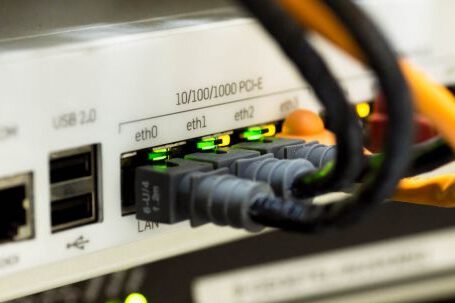In recent years, blockchain technology has gained significant attention across various industries. From finance to healthcare, this decentralized digital ledger has shown immense potential in improving transparency and security. One area where blockchain could have a transformative impact is government services. By leveraging the power of blockchain, governments can enhance transparency, reduce corruption, and streamline administrative processes. In this article, we will explore the potential of blockchain in enhancing transparency in government services.
What is Blockchain?
Before delving into the potential applications of blockchain in government services, it is essential to understand what blockchain is. At its core, blockchain is a decentralized and transparent digital ledger that records and verifies transactions across multiple computers. Each transaction, or block, is linked to the previous one, creating an immutable chain of information. This decentralized nature eliminates the need for intermediaries, making it highly secure and transparent.
Enhancing Transparency in Government Procurement
Government procurement processes are often plagued by corruption and lack of transparency. Blockchain technology can address these issues by providing a transparent and secure platform for recording procurement transactions. By implementing blockchain in government procurement, all transactions and associated information would be recorded on the blockchain, making it accessible to all relevant stakeholders. This would enable greater transparency, as anyone could monitor the entire procurement process, from tender issuance to contract awarding.
Streamlining Identity Management
Identity management is another area where blockchain can enhance transparency in government services. Traditional identity management systems are often fragmented and prone to data breaches. With blockchain, individuals can have control over their identities, and governments can ensure the authenticity and integrity of identity information. Blockchain-based identity management systems can enable individuals to securely manage their personal information, while governments can verify identities more efficiently and reduce the risk of identity fraud.
Improving Tax Compliance
Tax evasion is a significant challenge for governments worldwide. Blockchain technology can play a crucial role in improving tax compliance by providing a transparent and tamper-proof record of financial transactions. By implementing blockchain in tax systems, governments can track and verify transactions in real-time, reducing the chances of tax evasion. Additionally, blockchain can enable greater efficiency in tax collection by automating processes and reducing paperwork.
Promoting Citizen Participation
Blockchain technology has the potential to revolutionize citizen participation in government decision-making processes. By leveraging blockchain, governments can create decentralized platforms for voting and decision-making. These platforms would enable citizens to securely cast their votes and participate in policy discussions. The transparent nature of blockchain would ensure the integrity of the voting process, reducing the chances of fraud or manipulation.
Challenges and Considerations
While the potential of blockchain in enhancing transparency in government services is immense, there are several challenges and considerations that need to be addressed. Firstly, the implementation of blockchain requires significant investment in infrastructure and training. Governments would need to allocate resources to develop and maintain blockchain networks. Additionally, ensuring the security and privacy of data on the blockchain is crucial to prevent unauthorized access or manipulation.
Conclusion
Blockchain technology has the potential to revolutionize transparency in government services. By leveraging the decentralized and transparent nature of blockchain, governments can enhance transparency in procurement processes, streamline identity management, improve tax compliance, and promote citizen participation. However, the successful implementation of blockchain in government services requires careful consideration of challenges and investment in infrastructure and training. Nevertheless, the potential benefits of blockchain in enhancing transparency make it a technology worth exploring for governments worldwide.





